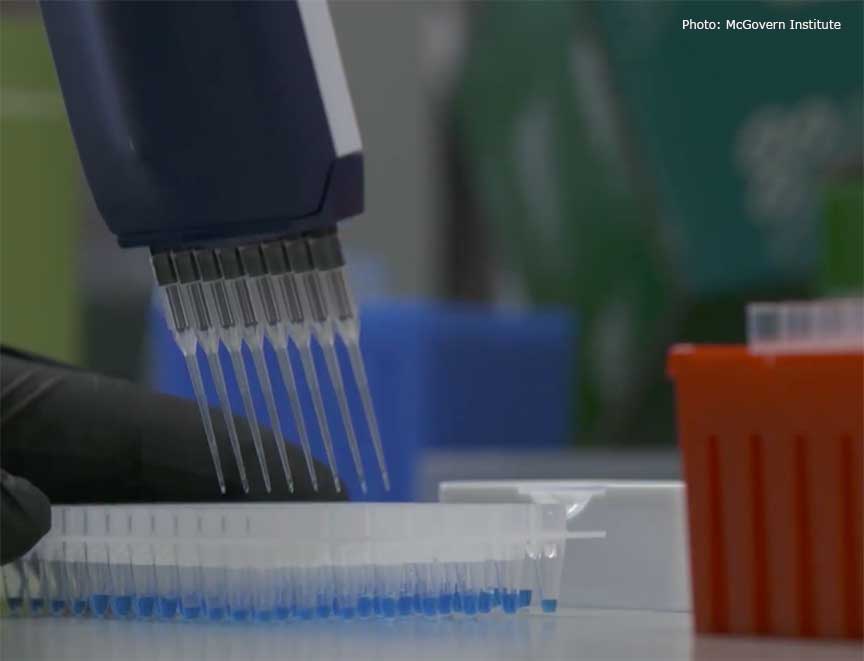New, promising COVID-19 diagnostic testing technology undergoes clinical evaluation at Dartmouth-Hitchcock Health
A CRISPR-based diagnostic test for SARS-CoV-2 is being further evaluated for its performance characteristics in additional clinical samples. The development marks a significant step for Sherlock Biosciences and the company’s recently announced research collaboration with Dartmouth-Hitchcock Health (D-HH).
Clinical pathology laboratory professionals have long been aware of the potential diagnostic properties that CRISPR (Clustered Regularly Interspaced Short Palindromic Repeats) technology has the potential to offer.
Sherlock and D-HH announced their research collaboration for a clinical study of this—the only CRISPR-based SARS-CoV-2 diagnostic test to have received an emergency use authorization (EUA) from the US Food and Drug Administration (FDA) and the first CRISPR-based diagnostic test used in a clinical setting. The EUA for this test was initially granted May 6, 2020, and the test has been marketed since that time. COVID-19 STAT Intelligence Briefings reported on this when the test first emerged as a potential diagnostic tool.
Gregory Tsongalis, PhD, Vice Chair for Research and Director of the Laboratory for Clinical Genomics and Advanced Technologies (CGAT) in the Department of Pathology and Laboratory Medicine, reported data from a pilot study conducted by his team at Dartmouth-Hitchcock Medical Center in Lebanon, New Hampshire, to evaluate the accuracy and performance of the Sherlock CRISPR SARS-CoV-2 kit for the detection of nucleic acid from the novel coronavirus that causes COVID-19. Sherlock results were 100 percent concordant with results from lab-based molecular polymerase chain reaction (PCR) testing in 20 clinical samples, according to Tsongalis.
Drivers of CRISPR-Based Diagnostic Testing for SARS-CoV-2 Coronavirus

“We have been encouraged by results from the pilot study of Sherlock’s CRISPR-based test to continue our evaluation,” said Wahab Khan, PhD, Assistant Director of CGAT at Dartmouth-Hitchcock. “At a time when COVID-19 clinical diagnosis is in high demand—and often with limited resources—this approach highlights the value of mature, new technologies to provide valuable alternatives for the detection of not only COVID-19 but other emerging infectious diseases.”
The collaboration between Sherlock Biosciences and D-HH seeks to provide more robust data for clinical laboratories and other entities considering using what is still a very new application of a technology that is newer itself. The CRISPR-based diagnostic test will be used to test patients from D-HH member hospitals.
“RT-PCR tests have been a mainstay in testing for the global COVID-19 pandemic in the US. Unfortunately, the sheer volume of tests demanded by the pandemic, coupled with the dwindling supply of reagents and other consumables needed to conduct RT-PCR, has created a dire need for alternative testing methods,” said Tsongalis. The CRISPR-based test may help circumvent some of the challenges with RT-PCR testing.
When this new coronavirus CRISPR tool received its EUA and became available to clinical laboratories, STAT COVID-19 spoke with Frederick (Fritz) Kiechle, MD, PhD, Medical Director at Boca Biolistics in Pompano Beach, Florida, about the implications of this development.
“The cost-per-test reduction and benefits are enormous,” Kiechle told STAT COVID-19 at the time. “It is super easy to do, and you don’t need any RT-PCR equipment which is very expensive and heavy. The cost of reagents for the isothermal amplification methods are very low compared to the reagents for RT-PCR. So everything you look at implies that you are looking at a better financial model for success in terms of cost per test over time.”
More CRISPR Coronavirus Data Forthcoming
CRISPR technology is still in its infancy, however, and the Sherlock SARS-CoV-2 test marks the first time for a CRISPR-based technology to be used for diagnostics.
While this new application of CRISPR technology to diagnostic testing may be unfamiliar to many clinical laboratory leaders, this new research project with D-HH as a collaborator will help to produce reliable, empirical data that better indicates the utility that this test will have in a clinical setting.
—By Caleb Williams, Editor, COVID-19 STAT
Related Resources:
SHERLOCK: A CRISPR tool to detect disease via McGovern Institute







